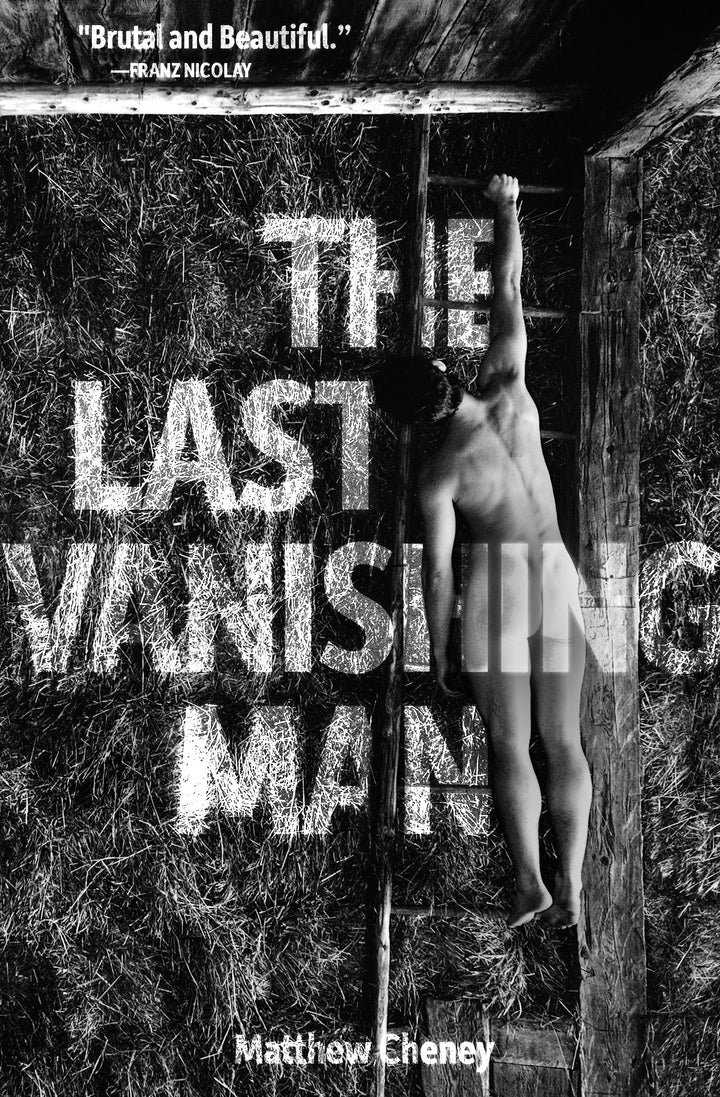
Wednesday Jun 14, 2023
7:00 pm - 9:00 pm
POWERHOUSE Arena
28 Adams Street (Corner of Adams & Water Street across from the Archway)
Brooklyn , NY
11201
This event will be IN-PERSON – mask wearing is recommended for in-store event attendance. RSVP here!
About the Book.
Magic stops. Men vanish. Worlds end. Life goes on.
The stories in The Last Vanishing Man start with the end of the world, as a narrator seeks to imagine how the actions of an American terrorist ripple through his family. American violence and masculinity are topics that weave through these stories, as characters of various genders and sexualities get scarred by the wounds of manhood. But though these stories bounce similar themes off each other, they are not narrow in focus or tone. Hard-edged realism lives alongside ghost stories and weird tales; the lyrical tragedy of “A Suicide Gun” sits beside the wild, filthy, absurdist romp that is “The Ballad of Jimmy and Myra”, a murder ballad that might be a lost Weird Al song for a John Waters movie. The collection winds down with an expatriot American living in the melting tundra of Siberia, seeking liberation from the forces that deranged his life, the same forces that shaped and warped the lives of all the other characters in the book.
The Last Vanishing Man is organized in four sections. The first section tells tales of people seeking to make sense of history and their place in it, whether the history of a queer sanctuary in Canada or of the unfulfilled dreams of the Warhol star Candy Darling. The second section gives us characters who are each on a quest to understand someone who is gone, vanished into memory or worlds beyond, their stories closer to myth than history. In the third section, lonely men seek meaning in a world where they have lost their way. Their quests become philosophical, even spiritual, as they wander toward something greater than their own transient desires. The final section breaks the book open with extremes: extremes of feeling, extremes of strangeness, extremes of horror. The fiercely disturbing story “Patrimony” portrays a post-apocalypse where male power renders the procreation of humanity into torture. “On the Government of the Living” is also a post-apocalyptic story, also a story of children and humanity, but more haunting parable than horror, more Samuel Beckett than Clive Barker.
The Last Vanishing Man is a book for readers seeking more than familiar genre conventions, readers seeking stories that challenge, unsettle, surprise, and sing. These are stories aware of the sufferings of the world, stories of characters tormented by unfulfilled desires and unfathomable violence, but also stories of compassion, of community, of humor, and of infinite possibilities beyond the prison of the self.
About the Author.

Matthew Cheney’s debut collection of fiction, Blood: Stories, won the Hudson Prize and was published by Black Lawrence Press in 2016. His academic book Modernist Crisis and the Pedagogy of Form: Woolf, Delany, and Coetzee at the Limits of Fiction was published by Bloomsbury in 2020. About That Life: Barry Lopez and the Art of Community will be published by Punctum Books in the Fall of 2022. He is Assistant Professor and Director of Interdisciplinary Studies at Plymouth State University. His work has been published by Conjunctions, Woolf Studies Annual, One Story, English Journal, Weird Tales, Strange Horizons, Best Gay Stories 2016, Literary Hub, The Los Angeles Review of Books, and elsewhere. He is the former series editor for the Best American Fantasy anthologies, and the co-editor, with Eric Schaller, of the occasional online magazine The Revelator.
About the Readers.
 Franz Nicolay is a musician and writer living in New York’s Hudson Valley. In addition to records under his own name (“a natural-born star”—Pitchfork), he was a member of cabaret-punk orchestra World/Inferno Friendship Society, “world’s best bar band” the Hold Steady, Balkan-jazz quartet Guignol, co-founded the composer-performer collective Anti-Social Music, was a touring member of agit-punks Against Me!; and recorded or performed with dozens of other acts. His first book, The Humorless Ladies of Border Control: Touring the Punk Underground from Belgrade to Ulaanbaatar, was named a “Season’s Best Travel Book” by The New York Times. His second book, the novel Someone Should Pay For Your Pain, was called “a knockout fiction debut” by Buzzfeed; and was named one of Rolling Stone “Best Music Books of 2021” (“finally, the great indie-rock novel…like Dostoyevsky in a DIY punk space”). His writing has appeared in The New York Times, Slate, The Paris Review Daily, The Kenyon Review Online, Ploughshares, The Los Angeles Review of Books, Threepenny Review, and elsewhere. He has taught at UC–Berkeley and is currently a faculty member in music and written arts at Bard College and in Columbia University’s MFA fiction program.
Franz Nicolay is a musician and writer living in New York’s Hudson Valley. In addition to records under his own name (“a natural-born star”—Pitchfork), he was a member of cabaret-punk orchestra World/Inferno Friendship Society, “world’s best bar band” the Hold Steady, Balkan-jazz quartet Guignol, co-founded the composer-performer collective Anti-Social Music, was a touring member of agit-punks Against Me!; and recorded or performed with dozens of other acts. His first book, The Humorless Ladies of Border Control: Touring the Punk Underground from Belgrade to Ulaanbaatar, was named a “Season’s Best Travel Book” by The New York Times. His second book, the novel Someone Should Pay For Your Pain, was called “a knockout fiction debut” by Buzzfeed; and was named one of Rolling Stone “Best Music Books of 2021” (“finally, the great indie-rock novel…like Dostoyevsky in a DIY punk space”). His writing has appeared in The New York Times, Slate, The Paris Review Daily, The Kenyon Review Online, Ploughshares, The Los Angeles Review of Books, Threepenny Review, and elsewhere. He has taught at UC–Berkeley and is currently a faculty member in music and written arts at Bard College and in Columbia University’s MFA fiction program.
 Hannah Tinti is the author of the bestselling novel The Good Thief, which won The Center for Fiction’s first novel prize, and the story collection Animal Crackers, a runner-up for the PEN/Hemingway Award. Her latest novel, The Twelve Lives of Samuel Hawley, is a national bestseller and is in development for television. She teaches creative writing at New York University’s MFA program and co-founded the Sirenland Writers Conference. Tinti is also the co-founder and executive editor of One Story magazine, which won the AWP Small Press Publisher Award, CLMP’s Firecracker Award, a 2020 Whiting Prize, and the PEN/Magid Award for Excellence in Editing.
Hannah Tinti is the author of the bestselling novel The Good Thief, which won The Center for Fiction’s first novel prize, and the story collection Animal Crackers, a runner-up for the PEN/Hemingway Award. Her latest novel, The Twelve Lives of Samuel Hawley, is a national bestseller and is in development for television. She teaches creative writing at New York University’s MFA program and co-founded the Sirenland Writers Conference. Tinti is also the co-founder and executive editor of One Story magazine, which won the AWP Small Press Publisher Award, CLMP’s Firecracker Award, a 2020 Whiting Prize, and the PEN/Magid Award for Excellence in Editing.
